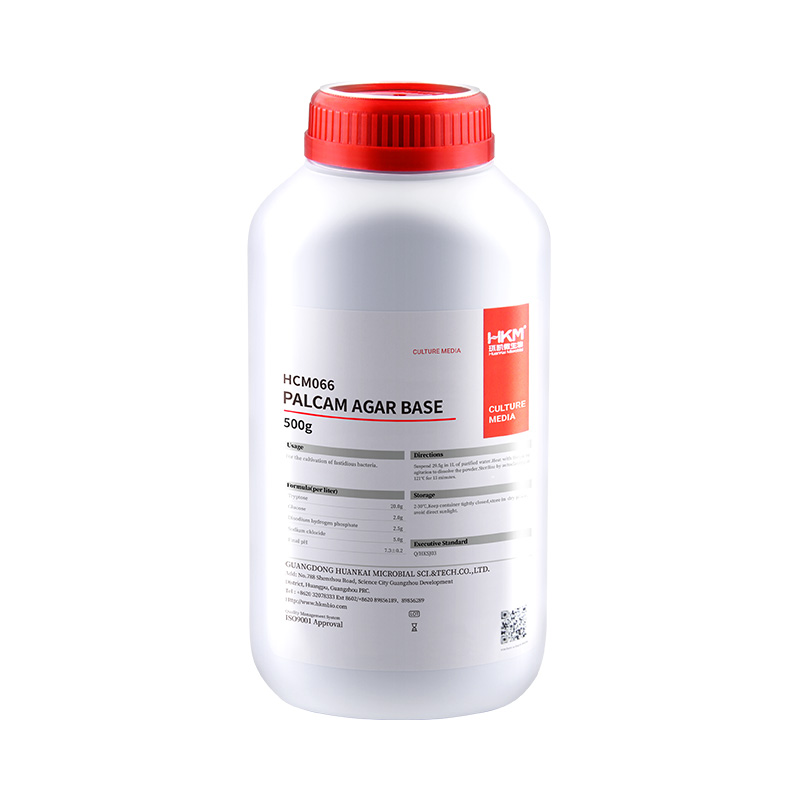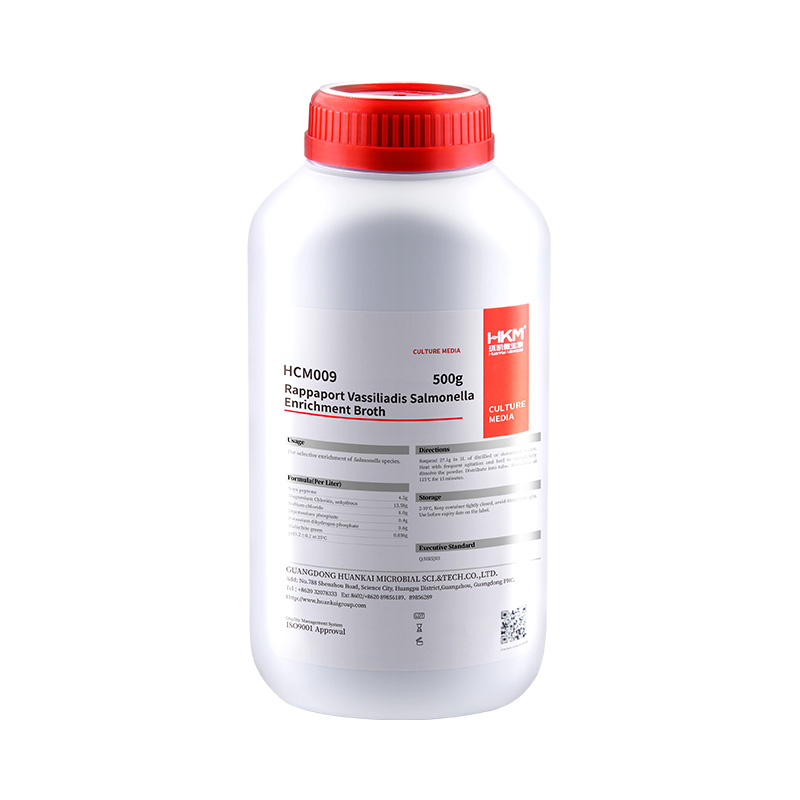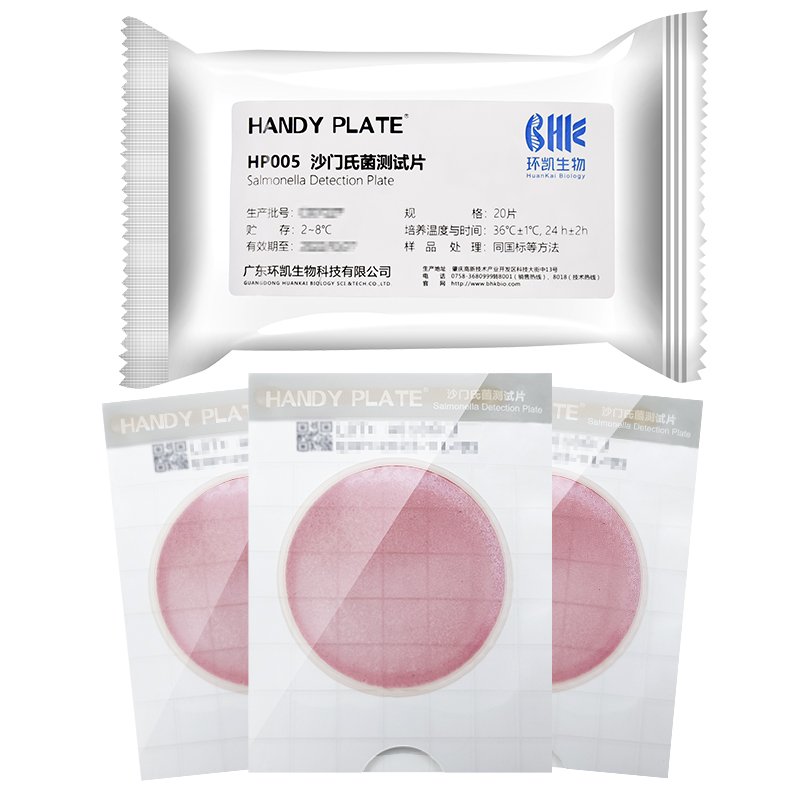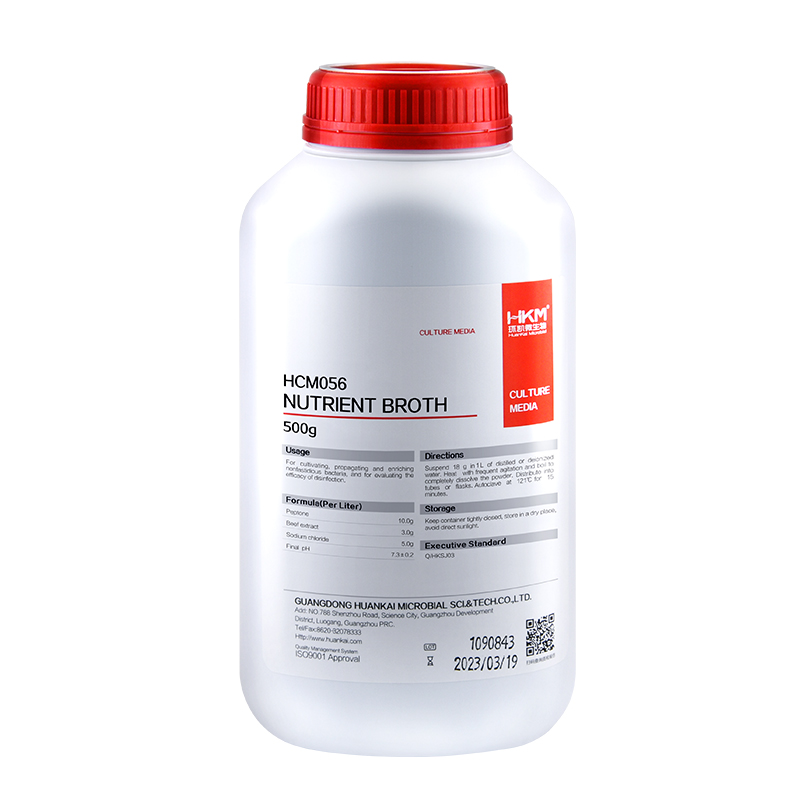HCM121 Rose Bengal Chloramphenicol Agar
$29-36
Product No.Product CategorySpecificationHCM121Dehydrated Culture Medium500g/bottle Intended Use For the selective enumeration of moulds and yeasts from foods. Principle and Interpretation ……
Introduction
| Product No. | Product Category | Specification |
| HCM121 | Dehydrated Culture Medium | 500g/bottle |
Intended Use
For the selective enumeration of moulds and yeasts from foods.
Principle and Interpretation
Enzymatic digest of soybean meal provides essential growth nutrients. Dextrose is the fermentable carbohydrate. Monopotassium phosphate act as a buffering agents and magnesium is a trace element important for the growth of yeasts and moulds. Rose bengal dye suppresses the development of bacteria and reduces the spreading of moulds. Chloramphenicol has inhibitory action on gram-negative bacteria.
Formulation
| Ingredients | /liter |
| Enzymatic digest of soybean meal | 5.0g |
| Dextrose | 10.0g |
| Monopotassium phosphate | 1.0g |
| Magnesium sulfate | 0.5g |
| Agar | 15.0g |
| Rose bengal | 0.05g |
| Chloramphenicol | 0.1g |
| pH 7.2±0.2 at 25°C | |
Preparation
Suspend 31.7g in 1 L of distilled water , stirring heated to boiling until completely dissolved, dispensing flask, 121 ℃ autoclave for 15min. Diluted and treated samples
Quality Control
Cultural characteristics observed after incubation at 25 – 30°C for 2-5d ,
| Quality control strains | Growth | Colony color |
| Aspergillus niger ATCC16404 | PR≥0.5 | white mycelia, black spores |
| Candida albicans ATCC10231 | PR≥0.5 | pink coloured colonies |
| Escherichia coli ATCC25922 | Total inhibition | – |
Sorage and Shelf Life
Keep container tightly closed, store in a cool, dry place, away from bright light. Storage period of 3 years.
Precautions
1. When weighing the dehydrated medium, please wear masks to avoid causing respiratory system discomfort
2. Keep container tightly closed after using to prevent clumping.
Waste Disposal
Microbiological contamination was disposed by autoclaving at 121°C for 30 minutes.
Revision
On June 14, 2024
References
1. Smith, N. R. and V. T. Dawson. 1944. The bacteriostatic action of rose bengal in media used for the
plate counts of soil fungi. Soil Sci. 58:467-471.
2. Marshall, R. T. (ed.). 2004. Standard methods for the microbiological examination of dairy products,
17th ed. American Public Health Association, Washington, D.C.
3. Eaton, A. D., L. S. Clesceri, and A. E. Greenberg (eds.). 2017. Standard methods for the
examination of water and wastewater, 23rd ed. American Public Health Association, Washington, D.C.




